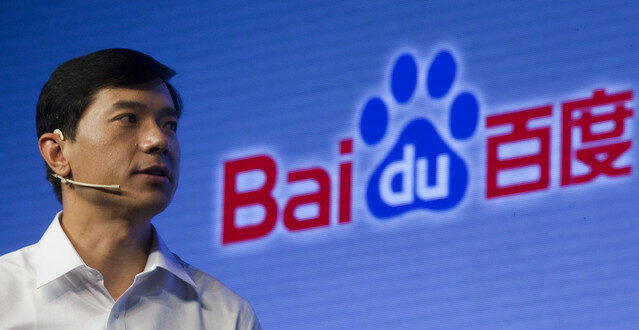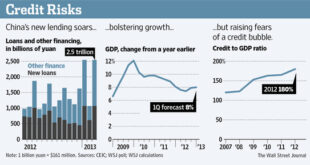Baidu Inc. (BIDU), owner of China’s dominant search engine, reported fourth-quarter profit that topped analysts’ predictions as companies boosted spending on online advertising to reach users in the top Internet market.
Profit excluding certain items was 95 cents per American depositary receipt, compared with 90 cents, the average estimate of analysts surveyed by Bloomberg. Net income climbed 77 percent to 2.05 billion yuan ($326.3 million), or 5.87 yuan per ADR, from 1.16 billion yuan, or 3.32 yuan, a year earlier, Baidu said today in a statement. That exceeded the 2 billion yuan average of 10 analysts’ estimates compiled by Bloomberg. Revenue jumped 83 percent to 4.47 billion yuan.
Advertisers increased spending to buy keywords as Baidu extended its lead over Google Inc. (GOOG) In China, where Beijing-based Baidu says it handles more than 80 percent of search queries, Chief Executive Officer Robin Li is expanding the company in services aimed at smartphone users and investing in video and music content to compete with Internet rivals including Tencent Holdings Ltd. (700)
“The average spending for advertisers have been growing very quickly,” Dundas Deng, who rates Baidu “accumulate” at Guotai Junan Securities in Shenzhen, said before the earnings were released. The company has been upgrading its advertising system, known as Phoenix Nest, to boost sales of keywords, he said.
Sales Forecast
Baidu rose 2.5 percent in Nasdaq Stock Market trading today before the earnings announcement. The stock has gained 22 percent this year, compared with the 28 percent gain in the Hong Kong-traded shares of Tencent, China’s biggest online-games company, and the 32 percent advance in Sina Corp. (SINA) (SINA), operator of the Twitter-like Weibo microblogging service.
Revenue is expected to rise to within a range of 4.2 billion yuan to 4.33 billion yuan in the first quarter, Baidu said. That compares with the 4.26 billion yuan average of analysts’ estimates compiled by Bloomberg.
The company accounted for 78.3 percent of China’s search- engine market by revenue last quarter, rising from 78.2 percent in the previous three months, according to research company Analysys International. Google’s share dropped to 16.7 percent from 17.2 percent, the researcher said.
Google has been losing ground in China’s search-engine market since January 2010, when theMountain View, California- based company said it was no longer willing to comply with Chinese regulation to self-censor Web content. Two months later, Google shut its Google.cn service and redirected Chinese users to its site in Hong Kong.
Robin Li is China’s second-richest man.
 Asia Finance News Asia finance news, banking, market analysis, business, Forex, trade, Cryptocurrency as it is happening in Asia. Trusted gateway for Asian financial news.
Asia Finance News Asia finance news, banking, market analysis, business, Forex, trade, Cryptocurrency as it is happening in Asia. Trusted gateway for Asian financial news.





